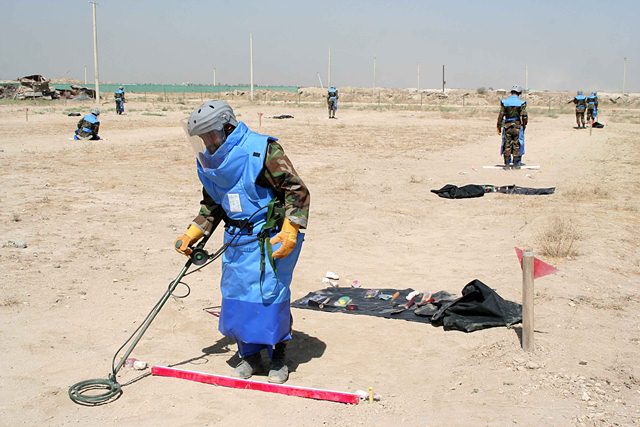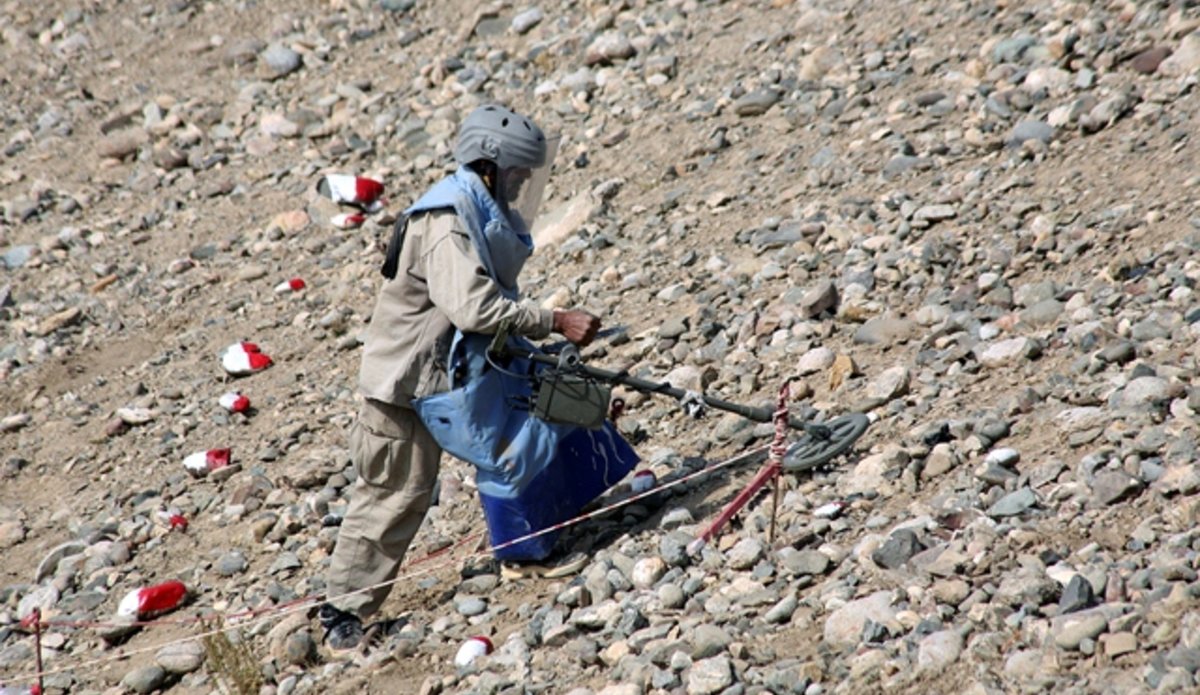Japanese support boosts Afghanistan’s demining efforts
KABUL - Afghanistan’s efforts to deal with the clearance of landmines and explosive remnants of war (ERW) received a boost this week with the donation of $3.6 million from the Government of Japan.
“The contribution will benefit over 1,500 Afghans living in 15 communities through the removal of 38 hazards over an area of 2.5 square kilometres in the provinces of Kabul, Parwan, Baghlan, Paktya and Nimroz,” according to a news release from the United Nations Mine Action Service (UNMAS) on Tuesday.
“The contribution will also result in Kabul New City and the district of Zaranj in Nimroz [province] being declared entirely free of all recorded hazards,” added UNMAS, which has been supporting the Mine Action Programme of Afghanistan (MAPA) since 2002.
The widespread and indiscriminate use of mines and munitions during more than 30 years of conflict has made Afghanistan one of the most heavily contaminated countries in the world.
UNMAS said Japan, which is the leading donor to UN efforts to eradicate landmines and ERWs, has maintained its “strong support” for humanitarian demining in Afghanistan. The $3.6 million is part of $13 million Japan has given to a UN-administered trust fund which disburses the money.
Afghanistan is a signatory to the Ottawa Mine Ban Treaty – officially known as the Convention on the Prohibition of the Use, Stockpiling, Production and Transfer of Anti-Personnel Mines and on their Destruction – which aims to eliminate anti-personnel landmines around the world.
In December 2012, the state parties to the treaty approved Afghanistan’s request to extend its 2013 deadline for becoming mine-free by 2023. But last year, MAPA experienced a 25 per cent drop in its funding, prompting the Government to issue an appeal to the international community for funds.

Japan has provided over $123 million to MAPA since 1991, leading to the clearance of more than 22,000 hazardous areas, the destruction of over a million anti‐personnel mines and over 16 million items of ERW, according to the UN demining agency.
UNMAS said the new contribution from Japan will also support the coordination of mine action throughout the country, allowing the Mine Action Coordination Centre of Afghanistan (MACCA) and the Afghan Government’s Department of Mine Clearance to plan and prioritize mine action activities, accredit and assure the quality of implementing partners and maintain the Afghan mine action database, among other activities.
“Japan has been a constant supporter of mine action in Afghanistan. 2014 is an important milestone for the country and, with this generous contribution, Japan’s commitment to the stability and development of Afghanistan is clear,” said the UNMAS Programme Manager in Afghanistan, Abigail Hartley. “Continuing support from the donor community is needed though to ensure that Afghanistan is mine free by 2023.”
The director of MACCA, Mohammad Sediq Rashid, said that despite the significant progress made in the past, many people, particularly children, are at risk of being killed or disabled by landmines and ERW. “This generous contribution from the people of Japan will not only save lives, it will also contribute to the peace and stability of our war‐torn country,” he added.
In a report released last October, MAPA said Afghanistan made significant progress by clearing more than 1,900 hazardous areas, covering 112 square kilometres of land, during the Afghan calendar year of 1391, which ended on the Gregorian calendar equivalent date of 20 March 2013. It also registered a “tremendous decrease” in civilian casualties as a result of its mine clearance operations which first started 24 years ago.
“The accident rate has dropped from as many as 25 casualties per day in 1993 to 37 casualties per month in 2013,” UNMAS noted in the news release.
Related articles:
- Afghanistan appeals to donors for continued funding for its mine action programme
- UN-backed agency cleared over 1,900 minefields in Afghanistan last year – report
 UN
UN






